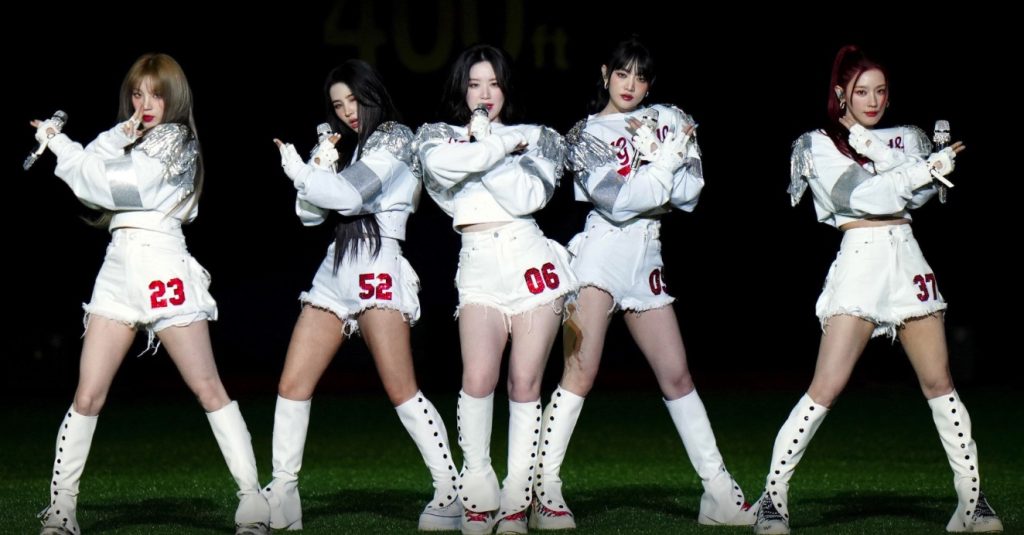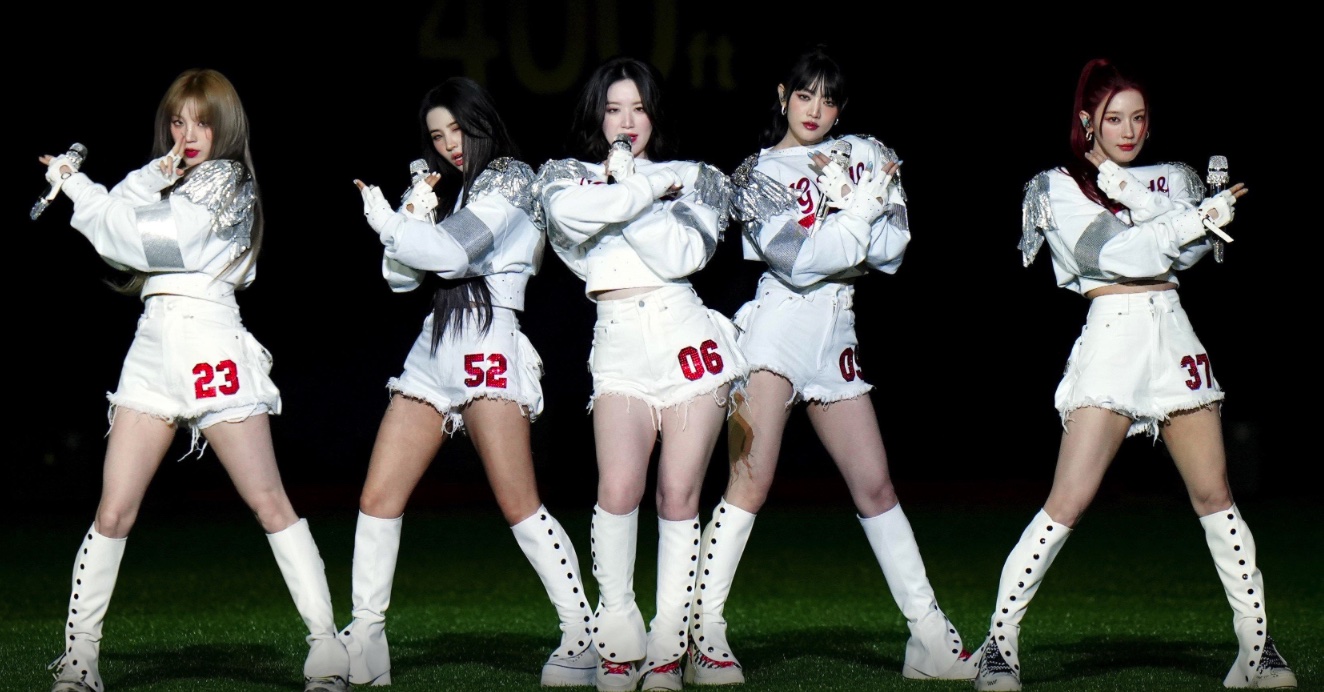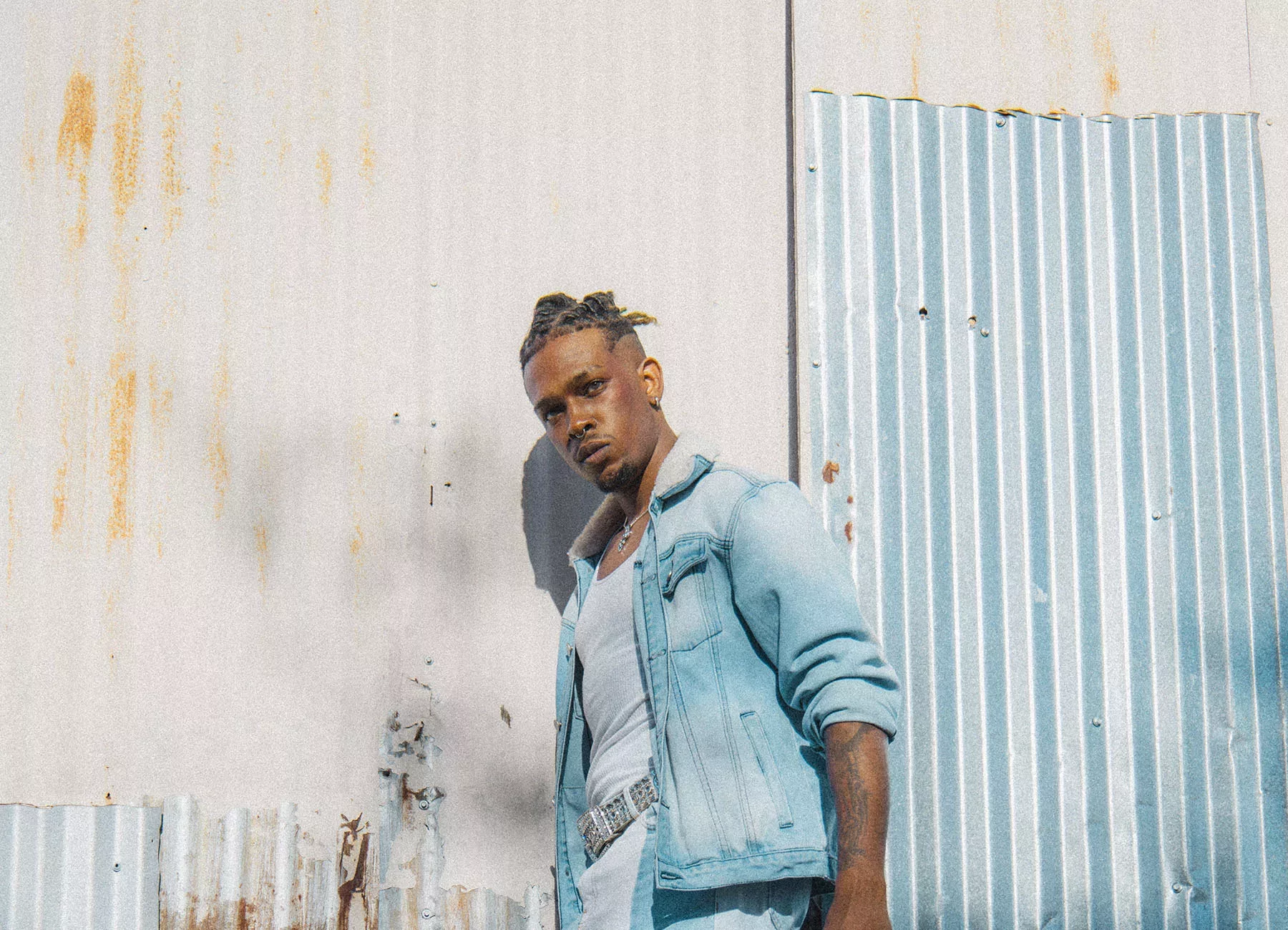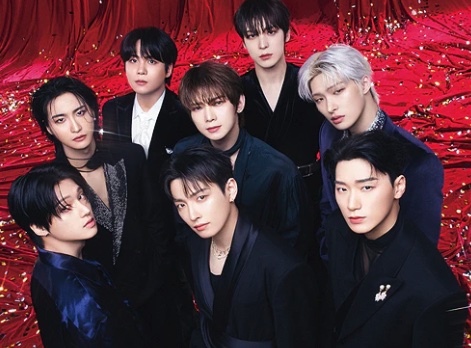From Girls’ Generation’s protest anthem “Into The New World” to MAMAMOO’s “WANNA BE MYSELF,” K-pop girl groups and idols are empowering women through song.

Behind the glitz and glamour of the K-pop industry, its female idols walk a path fraught with heavy expectations and systemic barriers. Even after navigating the rigorous trainee system, K-pop’s women are subjected to impossibly high standards and, often, little creative control.
Yet throughout K-pop’s multiple generations, artists have used their music to give visibility to their experiences. Whether it’s speaking truth to power about toxic societal stereotypes — as Lim Kim did on her EP Generasian — or calling for resistance and empowerment like HA:TFELT’s “Iron Girl,” these performers express messages of authenticity and determination. More than just singers of pop bops, these artists are fighting to tear down obstacles and persisting in the face of challenges.
Behind the glitz and glamour of the K-pop industry, its female idols walk a path fraught with heavy expectations and systemic barriers. Even after navigating the rigorous trainee system, K-pop’s women are subjected to impossibly high standards and, often, little creative control.
Yet throughout K-pop’s multiple generations, artists have used their music to give visibility to their experiences. Whether it’s speaking truth to power about toxic societal stereotypes — as Lim Kim did on her EP Generasian — or calling for resistance and empowerment like HA:TFELT’s “Iron Girl,” these performers express messages of authenticity and determination. More than just singers of pop bops, these artists are fighting to tear down obstacles and persisting in the face of challenges.
Below, explore songs that not only salute the talent and perseverance of women, but raise awareness about the hurdles they encounter.
Lee Hyori — “Miss Korea”
When Lee Hyori made her comeback in 2013, after nearly three years of hiatuscaused by a plagiarism incident beyond her control, she took full creative ownership of her resurgence. Over a luscious, jazzy production — a departure from her signature synthesis of upbeat energy and sensuality — “Miss Korea” encourages women to reclaim their worth and wear a queen-like confidence as armor.
Lee Hyori sweetly takes a jab at materialism and over-the-top beauty ideals, and questions whether they bring genuine happiness. And to make her statement even clearer, Lee Hyori appears in the music video being judged in a pageant contest, later surrounded by fashion brands and plastic surgery items.
The song rebukes the culture of appearance, positing that what truly matters is whether you feel at peace with who you are. In the end, Lee Hyori says, everyone can be “Miss Korea.”
Girls’ Generation — “Into The New World”
Girls’ Generation entered the K-pop industry in 2007 and eventually became a pivotal act in the Hallyu wave. Nearly a decade later, the group’s debut single became an unexpected and monumental protest anthem.
Composed by legendary South Korean songwriter Kenzie, “Into the New World”gained momentum in 2016 when students at Ewha Womans University used the song during protests demanding the removal of the institution’s dean. The movement uncovered an influence-peddling scandal and a web of corruption, revealing the extent of Choi’s illicit control over the government. Together, these truths ultimately resulted in the ousting of Park Geun-hye.
Ever since, “Into the New World” has been a recurring soundtrack for demonstrations within South Korean society and beyond. The track has been heard during protests for the #MeToo movement, abortion rights advocacy, and, more recently, the impeachment of President Yoon Suk-yeol.
“Into the New World” is an ode to hope and resilience, with each note conveying the promise that no matter the adversity, everything will be okay. “Don’t wait for a special miracle/ Our rough path in front of us,” the refrain encourages. “Might be an unknown future and challenge/ But we can’t give up.”
BoA — “Woman”
While BoA has never shied away from empowering tunes, her 2018 single “Woman” is her most roaring statement. The idol penned the song’s lyrics — a difficult process because the topic of womanhood is sometimes considered “sensitive” in Korean culture. She tried to communicate her message with class and nuance, hoping to inspire reflection.
“I believe that society can only exist harmoniously if men and women are treated equally,” she said during a press conference at the time of release. “I wanted to write a good song that helps women build up more self-confidence.”
Each verse encourages women to own their authenticity without seeking validation. The sentiment is even more pressing through the lens of an artist with an informal “expiration date” in the industry. Despite being the target of hateful remarks in recent years, BoA has continued to assert her place as the icon she is.
The music video for “Woman” features one of the most iconic dance sequences in K-pop. Therein, BoA makes her entrance by walking upside down, creating a visually stunning moment that reinforces the song’s theme of self-assurance.
IU — “BBIBBI”
When IU celebrated her 10th debut anniversary in 2018, the idol unveiled a delicate yet scathing composition addressing her critics.
“BBIBBI” incisively dismisses any malicious words cast her way, while singingabout the constant scrutiny of her actions and the rumors surrounding a supposed change in her personality. While IU makes it clear she remains the same, she offers a warning: “Hello stu-P-I-D/ If you cross that line, I’ll get serious, beep…. Stop it, keep the distance.”
This cautionary line reflects the toxicity that often characterizes Korean netizens and K-pop fans, who spare no mercy in their ruthless comments. Women artists, in particular, are subjected to severe backlash over the slightest missteps — a hostile environment that not only threatens their emotional well-being, but perpetuates prejudice and inequality within the industry.
LOONA — “Butterfly”
LOONA‘s existence was highly anticipated, from the 18-month rollout that brought the spotlight to each member of the girl group to the prismatic nature of their soundworld. So when “Butterfly,” the lead single from their debut’s reissue, dropped, it didn’t just earn critical acclaim — it also struck a profound chord.
The 2019 single encourages self-discovery and embraces personal transformation, as well as chasing dreams with the freedom of the wind. That message is propelled in the music video — filmed in Hong Kong, France, Iceland, the United States, China and South Korea — where women from various ethnic backgrounds become the protagonists, and they bond with the group in dance scenes.
They are stunning images that exalt inclusivity and diversity, qualities that LOONA’s music always managed to reflect, creating a space of acceptance.
MAMAMOO — “WANNA BE MYSELF”
Since their debut in June 2014, the striking voices of Solar, Moonbyul, Wheein, and Hwasa have made MAMAMOO a standard-bearer of empowerment. The group are bold in their messages of self-love and are unafraid to shatter norms while standing firm in the face of criticism.
MAMAMOO’s discography pulsates with this spirit — classics like “Yes I Am” and “HIP” instantly come to mind — but “WANNA BE MYSELF” is particularly resonant. This song carries a pursuit of self-respect and is a reminder to stay true to one’s values without bowing to outside perceptions. “I wanna be myself/ There is no set standard in the world,” the quartet proclaims. “Don’t compare/ Not different, you and I arе not different.”
“WANNA BE MYSELF” tears down the facade that women — especially young idols — are often pressured to uphold, challenging the relentless demand to prove their value. The song also echoes the group’s trainee days, when they were belittled by music executives for not conforming to beauty standards. Yet, this never deterred them from becoming one of the most influential girl groups in the realm of K-pop.
TWICE — “Girls Like Us”
In this song composed by Charli xcx, TWICE sings about holding fast to a dream even when self-doubt threatens to dim their light. Both dynamic and evocative, “Girls Like Us” also has a sweetness that emphasizes the importance of keeping your head held high.
TWICE’s leader, Jihyo, wrote the lyrics when she was going through “a bit of a rough patch” and “questioning whether or not I was a good enough artist.” It’s a song that feels almost cathartic, and open to multiple interpretations. It speaks to both the young girls enduring the grueling process of debuting as K-pop idols and to women who, throughout their artistic path, have felt their ambitions erode under the weight of burdens and doubt.
(G)I-DLE — “Super Lady”
(G)I-DLE have premised their catalog with confidence and liberation — values that main composer and leader Soyeon has embedded into the group’s identity alongside Minnie, Yuqi, Miyeon, and Shuhua. Songs like “Nxde,” “Queencard,” or “LION” could easily be on this list, but their latest lead single, “Super Lady,” takes center stage as a big celebration of strength and sisterhood.
The instrumental hits with a thunderous, pounding energy, and the song wastes no time delivering its most impactful lines: “I am a god, super lady / I NEVER DIE did you all see?” The line is a direct nod to the album they released after losing founding member Soojin, silencing doubts about whether (G)I-DLE would overcome the setback.
The music video heightens the experience with visuals that channel the grandeur of a marching spectacle. It’s brash and in your face, but that’s exactly the group’s mission: to assert fearless independence.
Read more: How K-Pop’s (G)I-DLE Are Learning To Love Themselves: “There’s No Rules In This World”
CLC — “NO”
“NO” opens with an air of defiance: “Red lip? No/ Earrings? No/ High heels? No/ Handbag? No.” At its core, the track is a feminist statement, defying the limits of categorization and pushing forward to smash the stereotypes imposed on women.
Written and composed by (G)I-DLE’s Soyeon, with CLC member Yeeun also contributing rap lines, the song is built on ever-evolving synths that lend to a seesaw of intensity. The group brings that intensity to life, challenging why they should mold themselves to fit people’s tastes and affirming they love themselves — no labels can constrain their personal depth.
Within the K-pop industry, girl groups are often confined to innocent concepts and compelled to present themselves in an “adorable” manner. “NO” calls for them to break free and express their essence in whichever way they feel most comfortable.
Chung Ha — “Chica”
Off her fourth mini album, Flourishing, Chung Ha‘s “Chica” is written as a letter to her younger, pre-debut self. In it, she motivates her youthful spirit to uncover her potential and shine while taking charge of her future despite the uncertainty. Chung Ha urges herself and all women to rise above their insecurities.
“It doesn’t matter/ How many times you fall/ As long as you try/ Woman now, woman now,” the bridge states. The song is an awakening, with Chung Ha reminding through every lyric that true strength arises from faith and stepping boldly into the light.




